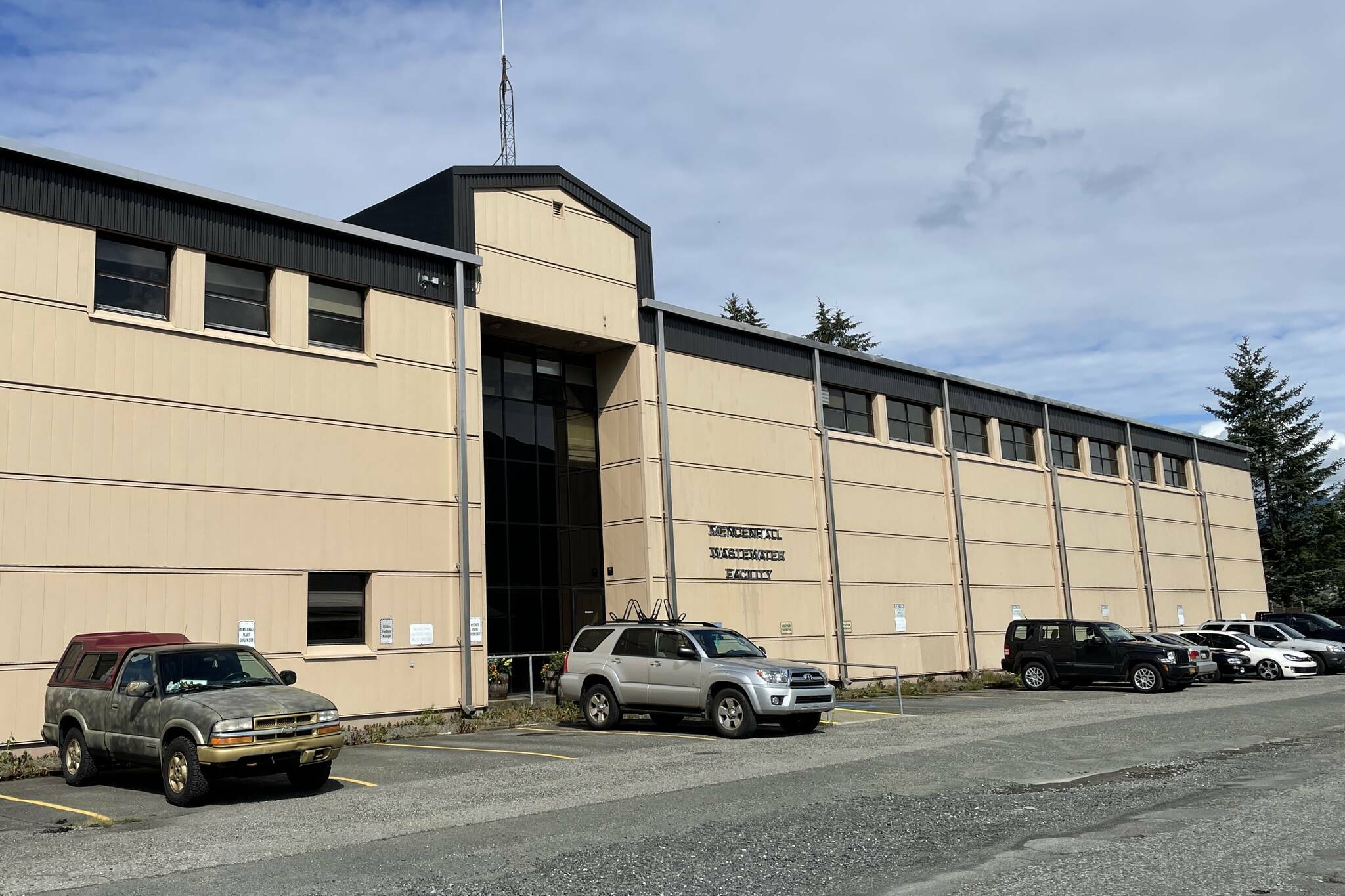Three separate toxic discharges of significant size were detected at two Juneau wastewater treatment plants on Wednesday, prompting city officials to issue a notice Friday about the prohibition of such substances in the sewer system and that an investigation is underway to find the responsible parties.
Toxic discharges significant enough to be noticed at the treatment plants are not common, but Wednesday was “a bad day,” said Chad Gubala, treatment and production manager for the City and Borough of Juneau’s Public Works and Utility Department, in an interview Friday.
“We had a detectable acid spill that affected the Mendenhall plant,” he said. “And then later on in the day we had a diesel spill affect the same plant, the Mendenhall plant. And then on the same day we also had a discharge of substance still unknown to us — we actually have it out for testing — but it was a milky white substance that affected the Auke Bay plant.”
The amount of toxic materials is hard to determine because they are diluted as they progress through the wastewater system to the treatment plants, Gubala said.
“The diesel that we had that came through, the spill was very apparent because the entire plant smelled like diesel gas,” he said.
However, tracing contaminants back through the pipes can help narrow in on where the discharges come from, Gubala said.
The notice sent by the city states illegal substances in wastewater “pose threats to human health and risk to the environment, disrupt waste treatment operations, and cost the community-owned system a lot of money to manage.” Gubala said it is likely in this instance some diesel passed through the treatment plant’s system because the quantity exceeded the processing capacity of the microorganisms that digest the fuel, and the costs include the days city employees are spending monitoring and tracking the source of the discharges.
The city was able to resolve an incident involving a diesel leak into the downtown sewer system in September after sharing a public notice about that incident online asking people to check tanks for leaks, which resulted in both the apparent stoppage of the diesel flow and a probable source of the contamination.
The city is in the process of installing extra sensors in its sewage collection systems that will provide more specific information about the quantity, density and source of toxic materials, Gubala said.
“It’s going to take us probably the course of another year or so to actually get that completed,” he said. “But this has been an issue in response to a number of different things.”
The city’s notice states toxic materials can be legally disposed of at Juneau’s RecycleWorks, managed by Stuart Ashton who can be reached at (907) 364-7405 or stuart.ashton@juneau.gov.
• Contact Mark Sabbatini at mark.sabbatini@juneauempire.com or (907) 957-2306.

